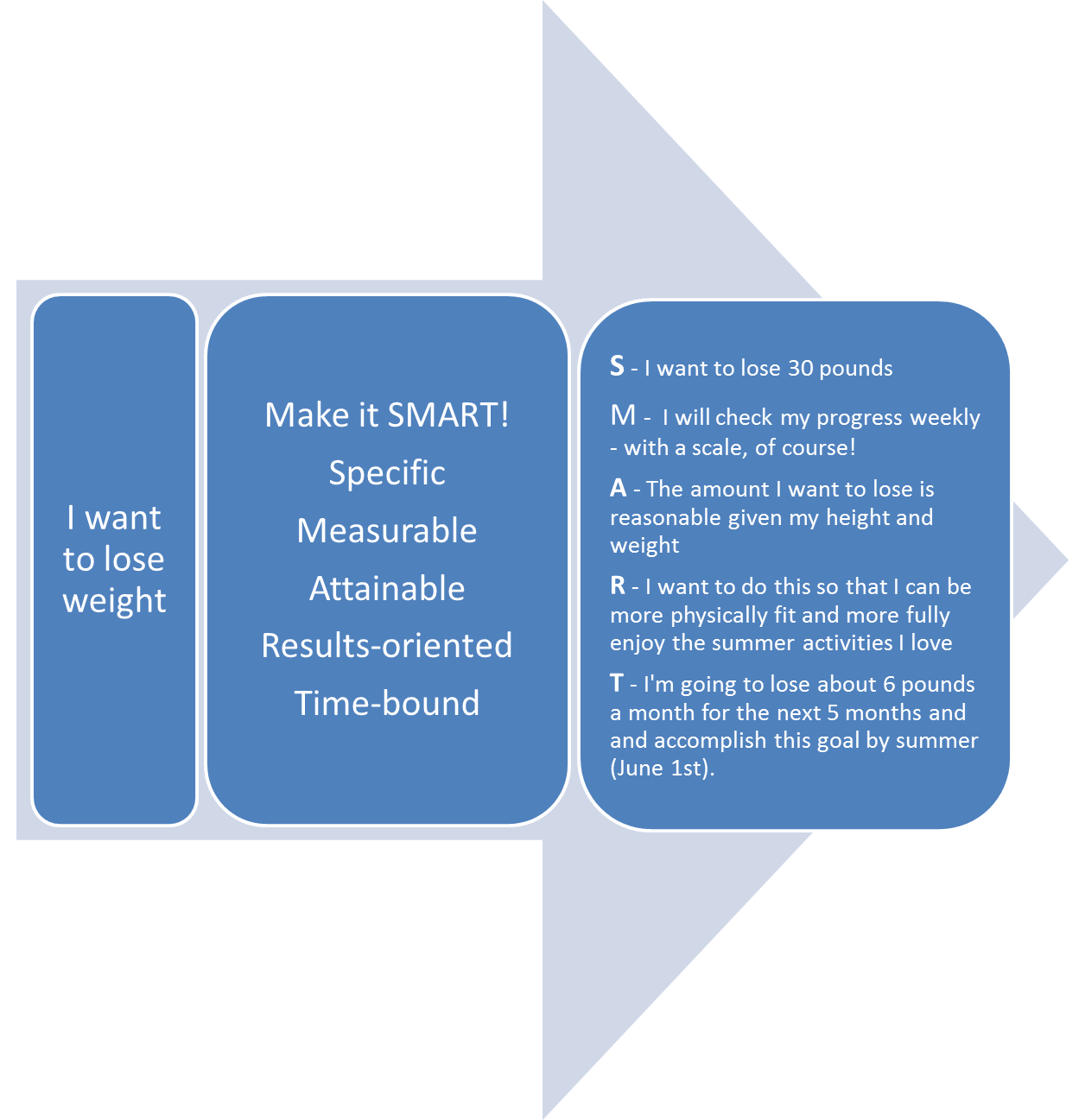Intentionality – From our Director of Assessment Services, Chelsea Berryman

Around this time, everyone is thinking about New Year’s resolutions, which is really a way of being intentional about how you are going to behave or what you want to accomplish as you enter the New Year. However, like many others, I find myself forgetting about these resolutions by mid-February, slipping back into a comfortable pattern as all of the energizing drive that comes with the beginning of a New Year fades away.
This year, I decided to do something different and apply a principle I use in my work to help me be more intentional about my resolutions and stay on track. I am using the SMART system of goal setting. If you’re not familiar with SMART goals, it’s an acronym that says that goals should be Specific, Measurable, Attainable, Results-oriented, and Time-bound. Many people’s New Year’s resolutions center on losing weight, so I’ll use that as an example.

As you can see, the SMART weight loss goal provides a road map, accountability, a way to check progress and know if I am on track, and a specific result to strive for. A goal like this is much easier to pursue and is more likely to be successful.
Work-life balance is critical for me to be fully present and engaged in my work, which is why I take the time to be intentional about my personal goals, not just the professional ones. How do you practice intentionality outside of work and what impact have those efforts had on your ability to perform at your best on the job?



